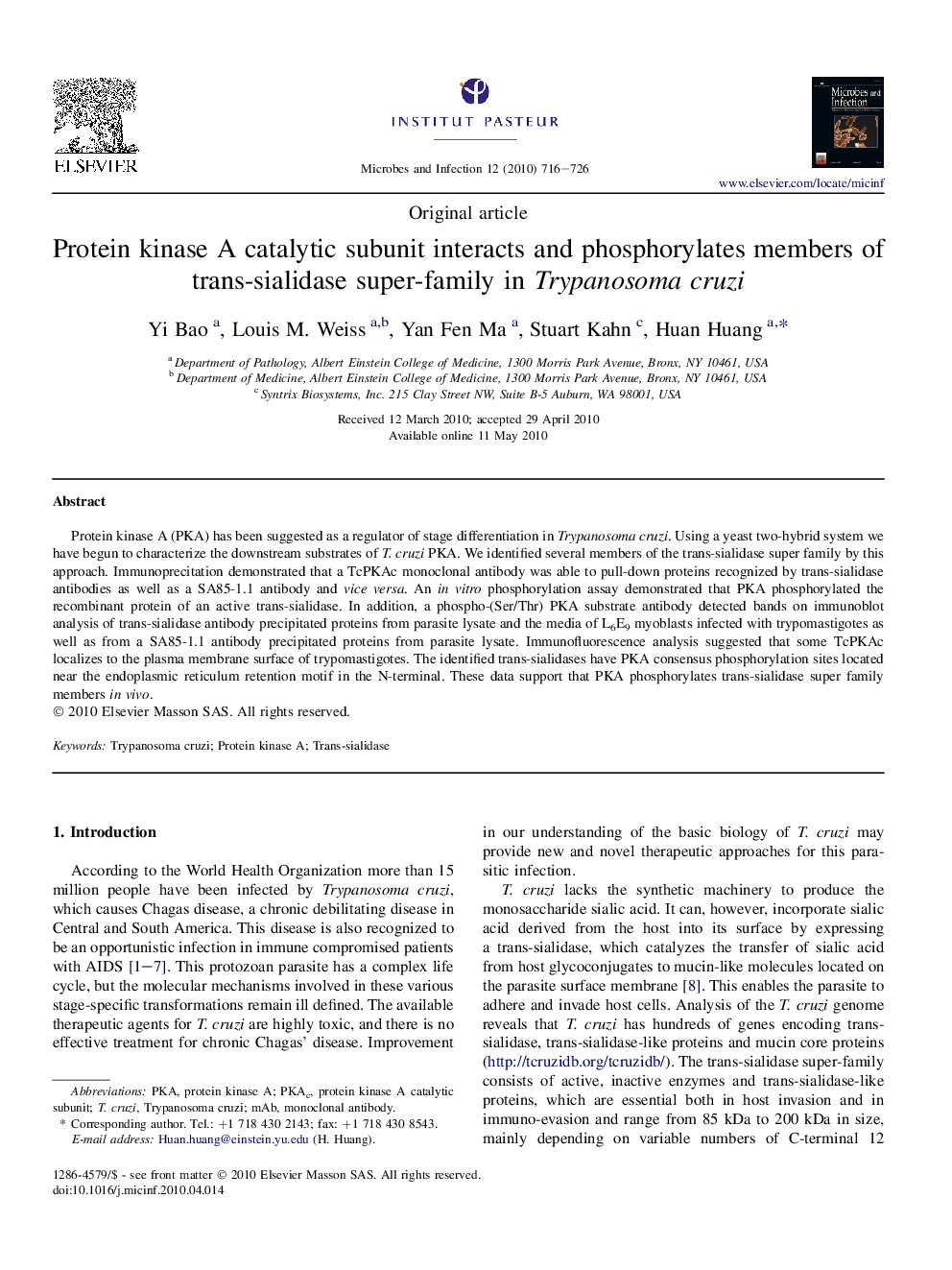| Article ID | Journal | Published Year | Pages | File Type |
|---|---|---|---|---|
| 3415253 | Microbes and Infection | 2010 | 11 Pages |
Protein kinase A (PKA) has been suggested as a regulator of stage differentiation in Trypanosoma cruzi. Using a yeast two-hybrid system we have begun to characterize the downstream substrates of T. cruzi PKA. We identified several members of the trans-sialidase super family by this approach. Immunoprecitation demonstrated that a TcPKAc monoclonal antibody was able to pull-down proteins recognized by trans-sialidase antibodies as well as a SA85-1.1 antibody and vice versa. An in vitro phosphorylation assay demonstrated that PKA phosphorylated the recombinant protein of an active trans-sialidase. In addition, a phospho-(Ser/Thr) PKA substrate antibody detected bands on immunoblot analysis of trans-sialidase antibody precipitated proteins from parasite lysate and the media of L6E9 myoblasts infected with trypomastigotes as well as from a SA85-1.1 antibody precipitated proteins from parasite lysate. Immunofluorescence analysis suggested that some TcPKAc localizes to the plasma membrane surface of trypomastigotes. The identified trans-sialidases have PKA consensus phosphorylation sites located near the endoplasmic reticulum retention motif in the N-terminal. These data support that PKA phosphorylates trans-sialidase super family members in vivo.
